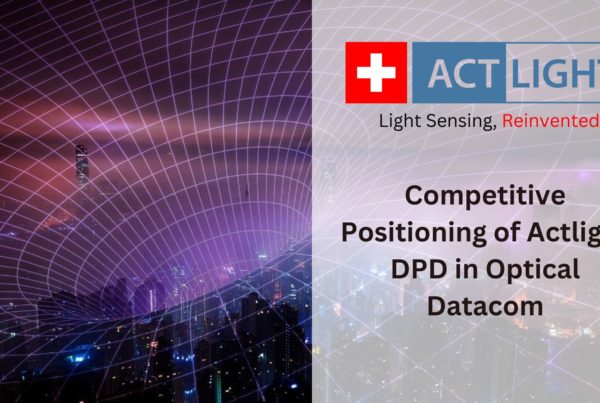In the rapidly evolving landscape of technology, safeguarding intellectual property (IP) has become a cornerstone for companies aiming to establish themselves as industry leaders. Recent case studies, such as the Apple-Masimo dispute and the challenges faced by Oura, highlight the critical importance of robust IP protection in the tech sector. In this comprehensive analysis, we delve into these case studies and explore how ActLight contributes to the #wearable , #smartphone and #virtual #reality technology industries, standing out with its innovative IP framework, offering unmatched security and reliability for these companies worldwide.
The Apple-Masimo Case: Lessons in IP Vulnerability
The Apple-Masimo dispute, which unfolded over several years, serves as a stark reminder of the risks associated with IP infringement in the tech industry. Masimo, a renowned provider of non-invasive monitoring technologies, filed a lawsuit against Apple in 2014, alleging that the tech giant had infringed upon its patents related to health monitoring devices.
At the heart of the dispute were allegations that Apple’s products, including the Apple Watch, incorporated features that infringed on Masimo’s proprietary technology. The legal battle underscored the complexities of IP disputes in the wearable technology sector and highlighted the need for comprehensive IP protection strategies.
While Apple eventually settled the case with Masimo in 2020, the incident served as a wake-up call for companies operating in the wearable tech space, emphasizing the importance of proactive IP management and robust patent portfolios.
The Oura Case: Navigating IP Challenges in Wearable Technology
In a similar vein, the challenges faced by Oura, a Finnish company known for its smart ring designed to track sleep and activity patterns, shed light on the risks associated with inadequate IP protection. In 2021, Oura found itself embroiled in a legal dispute when it was accused of infringing on a patent related to wearable biosensors.
The lawsuit raised concerns about Oura’s IP strategy and highlighted the potential consequences of overlooking IP rights in the competitive tech landscape. While Oura ultimately reached a settlement in the case, the incident underscored the importance of proactive IP management and the need for companies to prioritize IP protection as they innovate and develop new technologies.
ActLight’s Innovative Light Sensor Technology: A Game-Changer in IP Security
In contrast to the challenges faced by companies like Apple and Oura, ActLight has emerged as a pioneer in light sensor technology, offering a unique approach to IP security that sets it apart from conventional photodiode technology on the market.
At the heart of ActLight’s technology is its innovative photonic semiconductor solutions, which leverage the benefits of Dynamic PhotoDetector (DPD) technology. Unlike traditional photodiodes, which are limited by factors such as slow response times and high power consumption, ActLight’s DPD technology offers unparalleled performance, efficiency, and reliability.
By harnessing the power of DPD technology, ActLight’s light sensors deliver superior sensitivity, accuracy, and speed, making them ideal for a wide range of applications, including wearable technology, smartphones, augmented reality (AR), virtual reality (VR), and more. In AR/VR, light sensors like cameras and LiDAR are the key to unlocking a future where virtual worlds seamlessly blend with the real one, enabling immersive experiences that adapt to our environment and even our emotions. This technological leap has the potential to revolutionize everything from how we work and play to how we perceive and interact with the world around us.Moreover, ActLight’s patented technology provides a level of security and protection that is differentiated in the industry, ensuring that companies can innovate with confidence without fear of IP infringement or litigation
how does its DPD technology get around this broad “detector” claim? The ActLight CEO states that:
“DPD technology does not require any capacitor and the output signal is already digital”.
ActLight’s Proactive Approach to IP Management
Central to ActLight’s success is its proactive approach to IP management, which encompasses strategic patent filings, rigorous IP monitoring, and robust enforcement measures. With a strong portfolio of patents and a dedicated team of IP experts, ActLight is committed to safeguarding its innovations and ensuring that its partners and clients can leverage its technology with confidence.
Moreover, ActLight’s collaborative approach to IP management fosters innovation and partnership within the tech ecosystem, enabling companies to collaborate and co-create new solutions while mitigating the risks of IP disputes.
ActLight’s Journey
After initial conception, the team secured patents and meticulously crafted prototypes. The key to success then lay in convincing potential customers. This phase, often extending over several years, demands patience as companies meticulously evaluate the technology’s potential benefit before committing resources. A major market player has not only validated ActLight’s technology through due diligence but is actively bringing a product utilising our IP to market.
Paving the Way for a Future of Innovation
As the tech industry continues to evolve and innovate, the importance of robust IP protection cannot be overstated. Case studies like the Apple-Masimo dispute and the challenges faced by Oura serve as poignant reminders of the risks and complexities inherent in the world of technology IP.
In this landscape, ActLight stands out as a beacon of security and reliability, offering a comprehensive IP framework that empowers companies to navigate the challenges of IP infringement with confidence. By prioritising innovation, collaboration, and strategic IP management, ActLight is paving the way for a future where technology companies can thrive and innovate without fear of infringement or litigation.
Reach out to us on LinkedIn!






